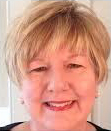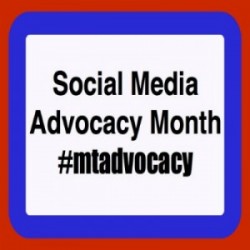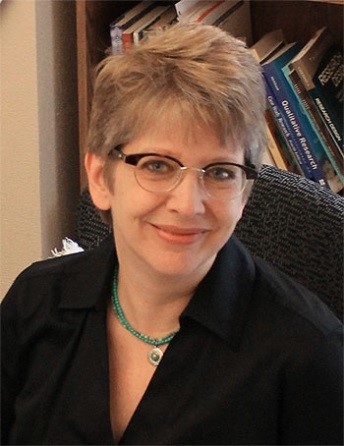Music Therapy Matters Monthly - January 2018

January 2018
Building the Future of Music Therapy
Click the links below to read more or – if the settings on your personal device browser don't allow it - go to the AMTA website first, log in with your current member email address and password, and then click the link for this month's issue of Music Therapy Matters Monthly under "Latest News" on the home page or use this link: http://www.musictherapy.org/members/music_therapy_matters/ and select the issue you desire.
Presidential Perspectives
 AMTA President, Amber Weldon-Stephens, shares her thoughts and hopes for the next two years as she steps into the role of AMTA President!
AMTA President, Amber Weldon-Stephens, shares her thoughts and hopes for the next two years as she steps into the role of AMTA President!
It is my honor and pleasure to write my first Presidential Perspectives column for the members of the American Music Therapy Association. Over the past two years as President Elect, and the years serving as Vice President and Vice President Elect, I have learned so much.I am extremely thankful for the guidance from President Jennifer Geiger and Past President Amy Furman. I pledge to do my best to keep this organization moving forward, while spreading the mission of AMTA: “to advance public awareness of the benefits of music therapy and increase access to quality music therapy services in a rapidly changing world.”
Looking back on 2017, the work of AMTA was unprecedented with music therapists, researchers, students and clients involved with outstanding events involving NIH and the Kennedy Center titled, “Sound Health: Music and the Mind.” These events have once again gained music therapy national recognition and increased public awareness. The needs are growing and the demands are increasing in all areas of practice. From professors to clinicians to practicum students to interns, the need for highly qualified music therapists is increasing with our “rapidly changing world.”
With the beginning of 2018, I urge all music therapists to renew their membership with AMTA. From music therapists in large metro cities, to small towns in rural locations, membership embodies quality, research, advocacy and leadership within our ever-growing profession. The work of our organization benefits every music therapist regardless of membership status and, therefore, the larger the membership, the greater our impact as a profession; remember “WE ARE AMTA.”
I urge everyone to stay connected with fellow music therapists. Our profession at times can be very isolating whether you work in private practice or within a large organization; many music therapists work as a department of one, or just a few. Stay connected with your local music therapy organizations, state associations, task forces, and AMTA. What binds us together is the power of music in our clients’ lives as well as in our own.
Over the next two years as President of AMTA, my hope is to increase awareness within our profession by encouraging all music therapists to stay involved and updated with the work of AMTA, which in turn will build our connectedness to each other, to our communities and most importantly to those we serve. I learned a long time ago that I am “wired to serve” and have done so in many areas of music therapy, which allows me the honor of serving you now. I look forward to getting to know many more music therapists over the next few years as I begin my travels. Together, we will work to align our goals and raise our expectations.
Best wishes in the New Year!
 AMTA Executive Director, Andrea Farbman, Ed.D., Announces Retirement after 30 Years of Leadership
AMTA Executive Director, Andrea Farbman, Ed.D., Announces Retirement after 30 Years of Leadership
After three decades serving the American Music Therapy Association, Inc., Executive Director Andrea Farbman announces her retirement, effective December 31, 2018.
Click here to read more:
First AMTA Electronic Election Results

 Congratulations to the 2018-2019 AMTA President Elect Deborah Benkovitz Williams, MSW, LSW, MT-BC and Vice President Elect Wendy S. Woolsey, MA, MT-BC!
Congratulations to the 2018-2019 AMTA President Elect Deborah Benkovitz Williams, MSW, LSW, MT-BC and Vice President Elect Wendy S. Woolsey, MA, MT-BC!
Thank you to Deborah Benkovitz Williams and Wendy Woolsey for your willingness to serve our association as President Elect and Vice President Elect, respectively. A special thanks to the Nominating Committee, chaired by Past President Amy Furman. In addition, hearty appreciation to the National Office Staff who facilitated the first-ever AMTA electronic ballot! Thank you again for your prompt attention to the ballot.
In preparation for assuming the presidency in 2020, President Elect Benkovitz Williams, will work closely with incoming AMTA President Amber Weldon-Stephens, Executive Director, Andrea Farbman, and the Board of Directors. Vice President Elect Woolsey will work closely with incoming Vice President Kristen O’Grady, the Conference Local Committee, and conference planners from the National Office, Al Bumanis and Cindy Smith, in preparation for planning the 2020 and 2021 national conferences.
Please join us in congratulating our newest members of the AMTA Board of Directors!
https://www.musictherapy.org/2017_amta_election_press_release/
NIH News Features Article on Music and Health
The NIH featured a brief article on music in health with a segment on music therapy. The NIH newsletter is geared for the general public, lay audiences, and student readers interested in research and health. In keeping with AMTA's mission of education to the public and increasing awareness of music therapy, this article is shared with AMTA members. As an article published by the NIH, it is freely available to our members who may download and share the article.
Congrats to Emily Hurst, Winner of the Anne Emery Kyllo Memorial Scholarship
 The Anne Emery Kyllo Professional Scholarship of the American Music Therapy Association has been established in Anne's memory by the Emery and Kyllo families through The Denver Foundation to support professional music therapists in their efforts to expand their training and professional interactions through participation in continuing education opportunities.The award is three cash scholarships of $500 each that will be awarded annually for use towards CMTE credits.
The Anne Emery Kyllo Professional Scholarship of the American Music Therapy Association has been established in Anne's memory by the Emery and Kyllo families through The Denver Foundation to support professional music therapists in their efforts to expand their training and professional interactions through participation in continuing education opportunities.The award is three cash scholarships of $500 each that will be awarded annually for use towards CMTE credits.
Congratulations, Emily and thank you for your hard work in furthering the profession of music therapy!
Emily Hurst, MT-BC, NMT, is honored to have been a recipient of the Anne Emery Kyllo Memorial Scholarship this year. Emily is a 2010 graduate of Taylor University and later completed her Bachelor’s Equivalency in Music Therapy at Indiana University Purdue University of Indianapolis. Emily has been working in the field of neurodevelopmental differences with people of all ages since 2015.
As continued research evidence built toward a paradigm shift in the way certain neurodevelopmental differences are understood and treated in music therapy, Emily knew early on that she would want to become a member of the Academy of Neurologic Music Therapy through attending a 4-day intensive training. The expense had been an obstacle, until this year when the Anne Emery Kyllo Memorial Scholarship made it possible for her to attend the institute offered in Cleveland, Ohio. The training afforded Emily the opportunity to delve further into her understanding of how rhythm, melody, and harmony influence neurological pathways in the body. She has begun to incorporate this into her practice over the last weeks and months, and has seen positive outcomes very quickly. Collaboration with colleagues who attended this same training has also afforded her the opportunity to find people in close geographic proximity that can support her professional growth as a Neurologic Music Therapist.
In the future, Emily hopes to incorporate her knowledge of Neurologic Music Therapy into her own research, to further broaden the evidence base for using Neurologic Music Therapy in individuals with neurodevelopmental differences. Emily is currently employed with Hillcroft Services in Muncie, Indiana and is using her new training as a Neurologic Music Therapist to serve clients aged 6 months to 70 plus.
Easier Access to Music Therapy Research
In an effort to streamline the dissemination of music therapy research content, we have combined our online presence to create the following shared @AMTAResearch social media channels:
JMT-specific updates will use the #AMTA_JMT hashtag and MTP-specific updates the #AMTA_MTP hashtag. We will also continue to use the #mtresearch hashtag across all updates.
We invite you to find and follow the journals to access the latest in music therapy research and clinical practice. Feel free to share this information with your online network as well.
2018 Social Media Advocacy Month
 The AMTA Government Relations and CBMT Regulatory Affairs team invite you to participate in the 2018 Social Media Advocacy month! Find and share your advocacy song, and be sure to follow the #mtadvocacy hashtag throughout the month. We look forward to learning about YOUR music therapy advocacy song.
The AMTA Government Relations and CBMT Regulatory Affairs team invite you to participate in the 2018 Social Media Advocacy month! Find and share your advocacy song, and be sure to follow the #mtadvocacy hashtag throughout the month. We look forward to learning about YOUR music therapy advocacy song.
 Dr. Laura Beer Appointed as Incoming Editor-in-Chief of Music Therapy Perspectives
Dr. Laura Beer Appointed as Incoming Editor-in-Chief of Music Therapy Perspectives
The American Music Therapy Association is pleased to announce the appointment of Dr. Laura Beer as the incoming Editor-in-Chief of Music Therapy Perspectives (MTP). She will assume her duties as Editor-in-Chief when the next term begins on January 1, 2019. Dr. Beer brings considerable experience to the position, having served the journal as a member of the Editorial Board and as Associate Editor, and as a guest editor on several other journals.
Call for Editorial Board Nominations to Journal of Music Therapy
We are currently seeking nominations for appointment of persons to the Editorial Board of the Journal of Music Therapy. Editorial board members read and evaluate submitted manuscripts and serve in an advisory capacity to the Editor-in-Chief. Editorial Board members review manuscripts that are within their area of research/clinical expertise. Depending on submission volume, Editorial Board members review between four and ten manuscripts a year. Potential candidates should have expertise in research, scholarly writing, and clinical music therapy (or a related field), with evidence of on-going scholarly publication by peer review in their respective field. Anyone may nominate an individual (or self-nominate) for this service to the Journal and to the profession by sending a letter of nomination and a vita documenting the research productivity and clinical expertise of the nominee to the Editor-in-Chief.
Nominations are due by February 9, 2018 and should be sent electronically to:
Sheri L. Robb, Editor-in-Chief
Journal of Music Therapy
shrobb@iu.edu
Call for Nominations for Music Therapy Perspectives Editorial Board
We are currently seeking nominations for appointment of persons to the Editorial Board of Music Therapy Perspectives, for a 6-year term. Editorial board members read and evaluate submitted manuscripts and serve in an advisory capacity to the Editor and Associate Editors. Editorial Board members review manuscripts that are within their area of research/clinical expertise. Depending on submission volume, Editorial Board members review between two and eight manuscripts a year. Potential candidates will have range of areas of expertise, including clinical practice, research, scholarly writing, and clinical supervision, along with evidence of scholarly publication by peer review. Anyone may nominate an individual for this service to the Journal by sending a letter of nomination and a vita documenting the expertise of the nominee. Applicants may also self-nominate, sending a cover letter and vita when doing so.
Nominations are due by February 1st, 2018 and should be sent electronically to:
Anthony Meadows, Editor
Music Therapy Perspectives
ameadows2@su.edu
Become a Friend of Music Therapy
Become a Friend of Music Therapy by donating $25 or more and you or someone you designate will be listed as a Friend of Music Therapy for one year. You or your friend will also receive a Friends of Music Therapy Certificate. In addition, each friend will receive a 1-year subscription to Music Therapy E-News, an electronic newsletter published by the American Music Therapy Association. Your support as a Friend of Music Therapy helps AMTA increase public awareness for Music Therapy.
Music Therapy Documentary Premieres at the Kennedy Center
“Music Got Me Here,” is a film that chronicles the recovery of a young man, Forrest Allen, who sustained a traumatic brain injury from a snowboarding accident. The film provides an intimate look at the pivotal role clinical music therapy played in helping Forrest find his voice as described by Forrest’s music therapist, Tom Sweitzer.
“Music Got Me Here” premiered at the John F. Kennedy Center for the Performing Arts on January 10, 2018, to a packed crowd of medical personnel, music therapists, educators, administrators, and friends. Based on the resounding applause and standing ovations, the film touched audience members and promises to educate the general public and administrators alike about the power of music therapy as an evidence-based tool.
Job Connections from AMTA
- In the past 30 days, AMTA provided 32 referral lists of music therapists.
- In the past 30 days, AMTA posted 22 new music therapy-related positions.
To see more job opportunities for music therapists, current members can visit the Job Center (from the AMTA website, select Member Resources>Job Center>Job Hotline) and log in with your email address and password.
AMTA Pro Podcast: What IS Mindfulness Anyway?
Mindfulness has become a popular trend in business, education, and health care but is often misunderstood. In this AMTA-Pro podcast, our music therapy colleague Anne Parker takes a look at mindfulness from various perspectives to understand how it can positively impact our practice as music therapists. Anne was the featured speaker at the Carol Bitcon Memorial Lecture at the 2017 AMTA Conference in St. Louis, Missouri based on her experience as a music therapist for 40 years and as a student and teacher of mindfulness for over 20 years. This Podcast is FREE for members!
10 Tips to Make 2018 Your Most Productive Year Yet
Here are few tips from top professionals for what approaches keep them productive all year long. Bear in mind that there is no one definitive strategy to being productive-- it may take a little trial and error to find out what works best for you. Here’s to a more productive 2018!
Plan Tomorrow Tonight
The early bird only catches the worm if it plans the night before, says PR strategist Christina Nicholson. This way you don’t feel rushed the next day. Simply having a battle plan is like waking up to find your work already started.
Write a One-Item To-Do List
Brigid Schulte, author of Overwhelmed: Work, Love, and Play When No One Has the Time, decided to scrap her long, unfinished to-do list and replaced them with a single daily goal. “By acknowledging I had limited time, limited bandwidth, and too much to do, and forcing myself to choose just one thing and getting it done every day, I wound up accomplishing some of my most important goals,” she says.
Go for a Stroll
“The more I walk, the more ideas I have,” says Ellevest founder and CEO Sallie Krawcheck. These impromptu solo brainstorms have proved surprisingly fruitful. “I can come up with four to eight ideas for newsletter updates, business initiatives, website improvements, people I should connect—you name it—over a four-mile walk.
Know When to Quit
Viv Goldstein, leader for global innovation acceleration at GE, stresses the importance or backing away when you’re not longer adding value to a situation. “Don’t be afraid to stop work. It creates capacity to work on things that truly matter and ends up saving time, energy, and resources.”
CEO of the marketing analytics company TrackMaven, Allen Gannett, says that just being “willing to switch between projects to match my mood, I get much more done in a typical day.” This doesn’t mean you’ve given up on the project, it’s just for the time being.
Do Only Things You Love While Procrastinating
If you’re a procrastinator, it may be better to embrace it rather than fight it. “I love procrastinating, and I’ve come to grips that I’ll never stop procrastinating,” confides Tacklbox Accelerator founder Brian Scordato. He makes an effort to only do things he loves when procrastinating such as exercising, spending time with friends and family, etc. That’s help put his less productive time to better use so he can get to work without feeling guilty.
Automate Scheduling
Liz Alexander, cofounder of the company Leading Thought, outsources her appointment scheduling to the app Calendly. Alexander says since she’s made the switch she’s found more time “to do more revenue-generating work.”
Stop Talking and Listen
Write and designer Lisa Baird stresses the importance of listening. “Conversations get so much further, so much faster when you close your mouth, open your ears, deprioritize your own agenda, and truly understand someone else’s.” Baird suggests to ask open-ended questions, “Speak just enough to get the ball rolling, then be quiet.” It’s the most efficient method she’s found for moving from thought to action, especially on teams.
Push the Important Stuff to the Top
MailChimp’s VP of customer support Jon Smith pushes less urgent but important emails into a small handful of folders, leaving the most crucial ones marked “unread,” and archiving the rest. This way Smith’s top-priority messages stay front and center.
Set Action Triggers
Behavioral scientist David Hoffeld prefers to work with “action triggers”, which is a simple formula: “When X happens, I do Y.” While working on his latest book, Hoffeld would decide earlier in the day to do some writing after putting his kids to bed, and “then when that time came, I simply sat down and wrote for a few hours,” he says. “Preloading this decision and connecting it to an environmental stimulus enabled me to avoid decision fatigue, and gave me a boost in productivity.”
Write a “Stop-Doing” List
Jocelyn K. Glei, author of Unsubscribe: How to Kill Email Anxiety, Avoid Distractions, and Get Real Work Done, proposes sitting down and listing six to 10 things that you commit NOT to do in 2018. Think of them as your anti-resolutions. Psychologist Tomas Chamorro-Premuzic backs her up and says “saying ‘no’ to irrelevant tasks, or outsourcing them” is the real secret to productivity. “Realize what you love and do well, and focus on that.”
For the full list visit https://www.fastcompany.com/3066537/10-expert-tips-to-make-2017-your-most-productive-year-yet
Quote of the Month
"Productivity is never an accident. It is always the result of a commitment to excellence, intelligent planning, and focused effort."
--Paul J. Meyer, Author
Back
8455 Colesville Road, Suite 1000 | Silver Spring MD 20910 | Phone: 301.589.3300 | Fax: 301.589.5175